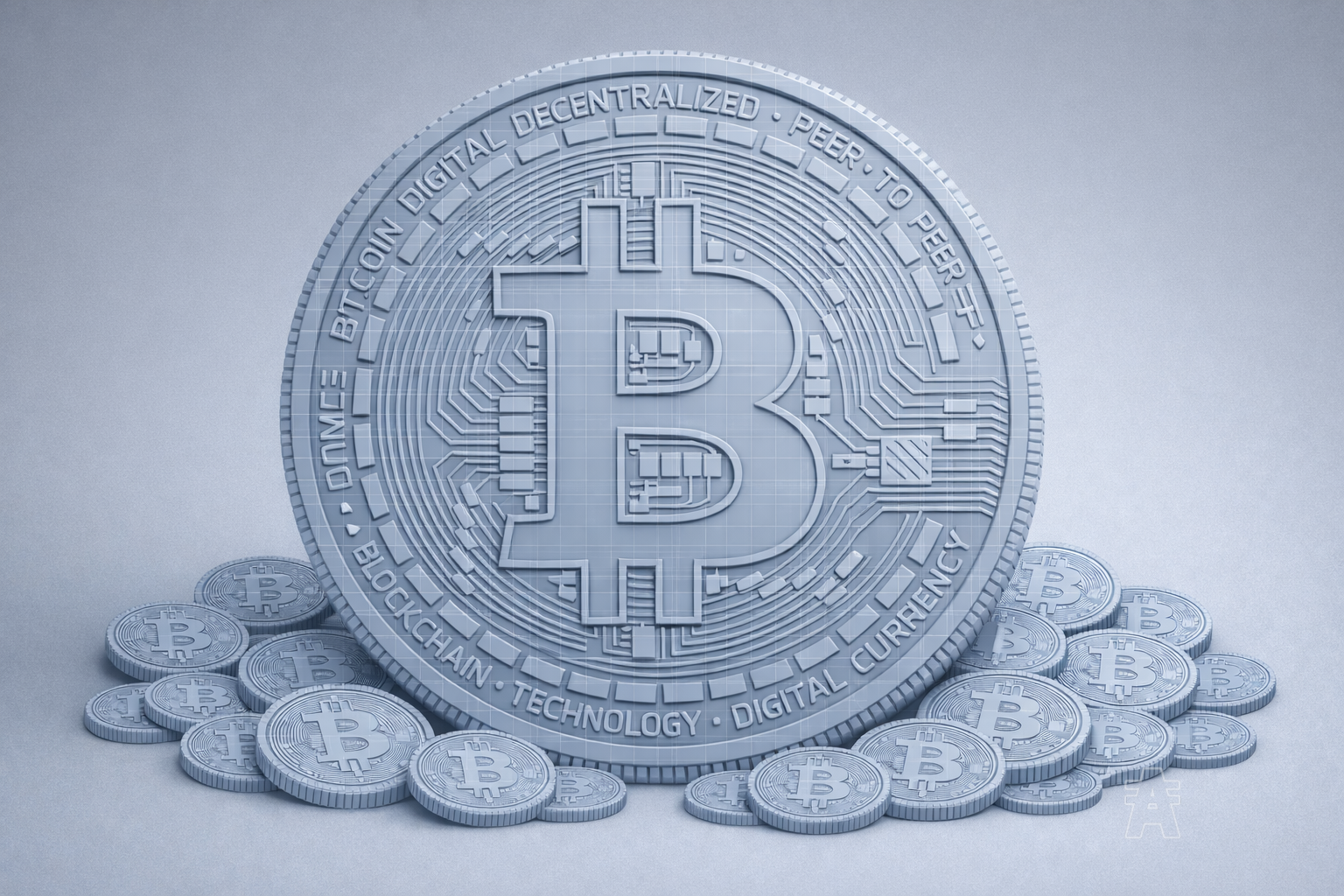Table of Contents
Bitcoin, created in 2009 by an unknown person or group using the pseudonym Satoshi Nakamoto, emerged as the first decentralized digital currency and rapidly evolved to become a significant financial phenomenon. Unlike traditional currencies, Bitcoin operates on a peer-to-peer network, independent of central authority control, fundamentally challenging conventional financial and monetary systems. This shift marks a critical juncture in the history of finance, where digital currencies like Bitcoin are reshaping our understanding and interaction with money. So, if you are planning to trade Bitcoin, you must have a reputable trading platform such as BitQT.
The core innovation of Bitcoin lies in its underlying technology – blockchain. This technology ensures transparency, security, and immutability of transactions, making Bitcoin not just a currency but also a groundbreaking technological advancement. The adoption of Bitcoin has been a rollercoaster of intrigue and skepticism, catalyzing a global debate on the future of money, privacy, and digital security.
Bitcoin's allure stems from several unique features. Its promise of anonymity offers a degree of privacy in transactions, albeit not absolute. The security provided by its cryptographic foundation has instilled confidence in its users. Perhaps most importantly, the potential for borderless transactions opens up new avenues for global financial interactions, untethered by national boundaries or traditional banking systems.
The impact of Bitcoin has been wide-reaching. It has not only inspired a whole sector of cryptocurrencies, known collectively as altcoins, but has also prompted governments, financial institutions, and corporations worldwide to reconsider their approaches to digital currencies and blockchain technology. Bitcoin's fluctuating value, often characterized by dramatic price swings, has made headlines, drawing attention from casual observers to seasoned investors.
This growing popularity and the surge in Bitcoin's adoption have not been without challenges. The decentralized nature of Bitcoin poses significant regulatory dilemmas for governments. Concerns over its use for illicit activities, its impact on national economies, and the environmental implications of Bitcoin mining are central to ongoing debates.
As Bitcoin continues to mature and gain acceptance, it presents an intriguing paradox. On one hand, it offers a revolutionary approach to money and financial transactions. On the other, it raises complex questions about legality, regulation, and the future of financial autonomy in an increasingly digital world. The journey of Bitcoin, from an obscure digital novelty to a topic of global significance, reflects a rapidly evolving landscape where technology challenges traditional notions of currency, value, and economic power.
Regulatory Landscape and Bitcoin
Globally, Bitcoin faces a patchwork of regulations. Countries like Japan have embraced it, offering a conducive environment for its growth, while others like China have imposed strict bans. Central to the regulatory debate are concerns about Bitcoin's use in illicit activities, leading to stringent anti-money laundering (AML) and know your customer (KYC) measures in many jurisdictions.
Legal Status of Bitcoin: Currency, Commodity, or Security?
The classification of Bitcoin varies globally. Is it a currency, a commodity, or a security? This classification bears significant legal implications, especially in taxation and consumer protection. For instance, as a currency, Bitcoin could challenge traditional financial systems, but as a commodity, it might face different regulatory scrutiny.
Contract Enforcement and Property Rights in the Bitcoin Ecosystem
Bitcoin's decentralized and pseudonymous nature complicates legal issues like contract enforcement and property rights. The irreversibility of transactions and absence of a centralized authority present unique challenges in dispute resolution and fund recovery.
International Cooperation and Bitcoin Regulation
The international community, including organizations like the Financial Action Task Force (FATF), plays a crucial role in shaping Bitcoin's regulatory framework. Cross-border cooperation is vital for tackling money laundering and other illicit activities involving Bitcoin, aiming to establish a more secure global cryptocurrency environment.
Bitcoin Adoption in Economically Volatile Regions
Countries experiencing economic instability, like Zimbabwe and El Salvador, have turned to Bitcoin as a legal tender option. This shift is driven by the need for a more stable and reliable monetary system, independent of the volatile local currencies and economic policies.
The Advantages of Bitcoin as Legal Tender
Bitcoin's fixed supply makes it resistant to inflation, a crucial factor for economies battling devaluation. Its efficiency as a unit of account and the ability to facilitate fast, inexpensive transactions globally are particularly beneficial for remittance-dependent economies. These attributes position Bitcoin as an attractive alternative to traditional currencies.
Accessibility and Environmental Considerations of Bitcoin
Over 1.7 billion adults lack access to traditional banking services, with a significant portion in developing nations. Bitcoin, accessible via smartphones, offers a potential solution. While concerns about its environmental impact persist, initiatives like using renewable energy sources for mining are addressing these issues.
Transparency and Security Aspects of Bitcoin
Contrary to popular belief, Bitcoin transactions are not entirely anonymous but pseudonymous, with transaction details publicly recorded on the blockchain. This transparency reduces the potential for Bitcoin's use in criminal activities, as evidenced by data showing a decline in the percentage of cryptocurrency transactions linked to illegal activities.
Challenges and Downsides of Bitcoin as Legal Tender
Bitcoin's volatility remains a concern, and its technical complexity can pose barriers to widespread adoption. Its reliance on the internet also limits its use in areas with poor connectivity. Additionally, issues like cybersecurity threats, tax complications, and market volatility present ongoing challenges.
Future Prospects: Bitcoin's Role in the New Age Economy
The adoption of Bitcoin by countries like El Salvador has sparked interest across the globe, with nations in Latin America and beyond considering its potential as a legal tender. This evolving landscape indicates a significant shift towards recognizing Bitcoin's value in the global financial system.
Conclusion
As Bitcoin continues to challenge the traditional financial landscape, its legal journey exemplifies the complex interplay between innovation and regulation. This pioneering digital currency not only questions existing monetary systems but also prompts a global reevaluation of legal frameworks in the face of evolving technology. The growing interest in Bitcoin, especially in regions facing economic instability, highlights its potential as a tool for financial inclusivity and stability. However, its journey is marked by significant legal hurdles that reflect broader concerns around digital assets. As governments and regulatory bodies adapt to this new financial paradigm, the future of Bitcoin remains a captivating subject, rich with opportunities and challenges. This evolving narrative underscores the critical need for balanced regulations that foster innovation while ensuring security and consumer protection, paving the way for a transformative era in global finance.







